From RALPH from over the Years
Writers on
Depression
Nell Casey, Editor
(Morrow)

Russell Banks found the depression of his wife Chase Twichell "sexy" --- that's one of the reasons he married her --- but after living it for a couple of years, he felt he was beginning to catch it, like the flu. He was saved only by deciding "A husband cannot become his own wife."
When she got pregnant, Lauren Slater went off her anti-depression drugs and became so depressed she had to quit --- not the pregnancy, but being without medication. David Karp said that when it hit him, he turned into a "mental health detective," searching for answers in books, and, finally gave up:
At age fifty-five, I have surrendered myself to depressive illness . . . I now see depression as akin to being tied to a chair with restraints on my wrists.
Jane Kenyon, wife to poet Donald Hall, was a lifer --- she grew up feeling miserable. There were some pills that helped, but there was one special thing that would make the "greyness" go away:
an orgasm would make her happy and eager to work. She leaped out of bed to write or garden. Therefore, we made love whether we felt like it or not.
Merik Nana-Ana Danquah says, "For every twelve joys, I had twenty-five sorrows." When she told writer Robert Bly that she was writing a book on being black and depressed, he said, "Whew. That's going to be one really long book."
Lesley Dormen tells us that "the specific character of despair is precisely that it is unaware of being despair," thus she comes up with one of the great problems of The Blues. That is, the difficulty of, at first, giving a name to whatever it is that's got us. Her definition is one of the best:
Depression says you can get blood from a stone, and so that's what you do. Competing voices are an irritating distraction from the work. No wonder depression doesn't get invited out much. Not because it's not the life of the party, it knows that it's not that, but because self-absorption as a work ethic is so prickly and one-eyed.
reading
Moritz Thomsen
(Steerforth)

The power of the writing comes from the slow and artful and painstaking description of this change. And, so that we won't think it is just some personal quirk, Thomsen shows us that he was not alone in this descent: all the men who were his fellow pilots, bombardiers, navigators, and gunners went through the same decay of spirit and soul.
A well-respected research group (headed by John Kenneth Galbraith) found, after the war, that saturation bombing done by the English and the Americans against the Germans did little actual damage to the Nazi war effort. On the contrary, it actually stiffened the resolve of the citizens. Furthermore, of the millions of tons of bombs dropped, some 5% actually reached the appropriate targets. The rest went into wheatfields, villages, towns, cities --- and people.
Americans at home found this out after the war; Thomsen and his fellows knew this while he was actually bombing the enemy. He knew that men, women, and children were dying from his bombs --- but his emotions had become so deadened by the missions, and their concurrent terror, that he could only reflect,
Dropping bombs on people from twenty-five thousand feet --- what could be cleaner, more purely and simply scenic, than that? From five miles up no bits of flesh or brains rebounded off your face, your limbs were not entwined in human guts, there were no dying screams, no cries for mercy; hell, you couldn't even hear your bombs. We thought at first that it was a lovely way to kill and that we would be spared remorse and the stab of conscience. But we were trapped by the lies we had been taught, for if man were sacred and a manifestation of God, how could we keep killing without going mad?
Without going mad? They do. The terror gets every one of them, so that, towards the end of their required missions, they are reduced to automatons --- pale, shaking, ghost-like; downing a bottle of liquor each evening; rousing themselves with dread --- no, with a dead and hopeless vacuity --- to climb in the airplanes each morning and set off again, to murder not only those below, but themselves.
The truth is that on a rational level --- exhausted by combat, stretched for months in a tension which for those of us who were cursed with imagination was almost unbearable, and facing at too young an age man's essential capacity to act in bestial and despicable ways --- life was not something that any longer had much meaning.
Each of the airmen he flies with either die early on, turns into a ghost or, like him, breaks. They all hope that when they do so, that none of their fellows will know. It happens to Thomsen when he went on leave to London. It was the wrong time and place to take a vacation. It was 1944, and "buzz-bombs" (the English, he tells us, called them "doodle- I have climbed from the bed, rushed to the window, and wrapped myself in the heavy blackout curtains. I am whispering and panting like an animal; I claw at my face and make little pig-like shrieks. Awake now, I realize that the curtains will protect me from nothing. I can see the shards of glass as sharp as daggers as they burst from the window and pin me into this shroud. Squealing with pain, on hands and knees, but at full speed, I crawl back to the bed and try to climb under it. No good; the bedframe is too low. A second later as the bomb passes over the hotel and its sound diminished toward Hyde Park, I find myself pressed into one corner of the clothes closet, with both hands, in a gesture of monumental redundancy, cupping my genitals. And when he finds that he has flown his final mission, is his reaction one of relief, of hilarity, of "now- Combat was over for me, and now what I wanted more than anything was to die, to blot out the guilt of having survived the raids that had destroyed so many of the men around me.
I had an interview with the boy and his father together, and I focused immediately on how ownership is defined. I picked out the bow and arrow as an issue. Whose was it? The father admitted that the bow and arrow belonged to the boy; they were given to him for his birthday. Then I asked how an ulcer should be treated. We agreed that it should be treated with bandages and medication of various sorts. I asked how would you use a bow and arrow to treat it? How would breaking a bow and arrow be treating an ulcer? The father was very embarrassed, and the son was eying his father with narrowed eyes. After the father had flushed and squirmed quite a bit in this discussion, I turned to the boy and asked him if he did not think he could at least honestly credit his father with good intentions despite his stupid behavior. Both of them had to accept that statement. In this way the boy could call his father's behavior stupid, but to do so he would also have to credit him with being well-intentioned.
Then I asked how much further we should go in discussing medicines that didn't work. Or could we forget about those? I said, "You've had this for two years. All the medicines from breaking the bow and arrow to selling your bicycle didn't work. What shall we do?" The boy had the idea that I should take charge.
I said to him, "All right, I will. But you won't like the way I take charge. Because I'm going to do something that will clear up the ulcer. You won't like it one bit; all you will like is that the ulcer is healed --- that you'll really like." I said I wanted him to devote every weekend to curing the ulcer on his forehead --- while his father did his weekend chores for him. The boy gave a triumphant glance at me and at his father.
We, British and Americans --- especially the British --- continued of course to blockade Germany because we didn't want them to get uppity before the Treaty was signed. So, for another year, they continued to starve.
The Peace Conference has been vividly described by Maynard Keynes in The Economic Consequences of the Peace (1919).
The Treaty was finally drawn up by four men: Clemenceau, "the tiger," who wanted to crush Germany; Lloyd George, who felt it would be politically expedient to get a lot of reparations out of Germany, and some revenge; and Wilson, who had to be bamboozled along. Whenever Wilson would wonder about those Fourteen Points of his, they took him out into the war cemeteries and made him feel ashamed of not being angry with the Germans. Who was the other? Orlando was the other, an Italian.
This was one of the great sellouts in the history of our civilization. A most extraordinary event which led fairly directly and inevitably into World War II. It also led (and this is perhaps more interesting than the fact of its leading to World War II) to the total demoralization of German politics. If you promise your boy something, and renege on him, framing the whole thing on a high ethical plane, you will probably find that not only is he very angry with you, but that his moral attitudes deteriorate as long as he feels the unfair whiplash of what you are doing to him. It's not only that World War II was the appropriate response of a nation which had been treated in this particular way; what is more important is the fact that the demoralization of that nation was expectable from this sort of treatment. From the demoralization of Germany, we, too, became demoralized. This is why I say that the Treaty of Versailles was an attitudinal turning point.
I imagine that we have another couple of generations of aftereffects from that particular sellout to work through. We are, in fact, like members of the house of Atreus in Greek tragedy. First there was Thyestes' adultery, then Atreus' killing of Thyestes' three children, whom he served to Thyestes at a peace-making feast. Then the murder of Atreus' son, Agamemnon, by Thyestes' son, Aegistheus; and finally the murder of Aegistheus and Clytemnestra by Orestes. It goes on and on. The tragedy of oscillating and self-propagating distrust, hate, and destruction down the generations.
I want you to imagine that you come into the middle of one of these sequences of tragedy. How is it for the middle generation of the house of Atreus? They are living in a crazy universe. From the point of view of the people who started the mess, it's not so crazy; they know what happened and how they got there. But the people down the line, who were not there at the beginning, find themselves living in a crazy universe, and find themselves crazy, precisely because they do not know how they got that way.
"Scooch, you look fantastic," he says, using his pet name for her. "What are you doing in this place?" He comes laden with presents --- the New Yorker, Newsweek, People, Vogue --- the very magazines I had pondered over and decided not to bring.
"Did Father tell you why he locked me up?"
Aaron envelops her in his arms, loving and offhand, hiding his distress.
He beckons me out into the hall. He looks thinner than the last time I saw him, and is cultivating a soft uneven beard. "I thought I knew her," he says, a hint in his voice of one who has been deliberately deceived. The idea of his sister behaving without a trace of rational intention is unfathomable to him, as it was to me at first. In a single stroke her identity has changed; and by extension ours, as a family, has changed too. I detect in him the same question I keep asking: Where has she gone?
Horrified, he describes a patient he encountered while on his way to Sally's room: a round, wild-haired, gap-toothed woman devouring a mango.
"Fabulosa," I say.
"You know her?"
"I've been spending a lot of time here."
"This can't be good for Sally, identifying with these people, I mean. She's not like Fabulosa, Pops. This isn't the crowd she should be told she belongs to. Think about it, by putting her here, we're telling her she's crazy."
He drapes an arm around me. "You look like shit." Then, lowering his voice, he repeats my own dashed belief that psychedelic drugs are the cause of Sally's altered state. "I've seen people flip out after bad trips at school. It shakes them up. But they come back."
When I tell Aaron that I've already looked into this possibility, he is unconvinced. "You didn't get to the bottom of it," he says. "If she took acid, she has every reason not to come clean to you about it. She's afraid of how angry you'll be; and she wouldn't want to rat out her friends. She'll feel freer to confide in me. Watch."
And with that he goes back into her room without me, carefully closing the door.
Aaron the rescuer. I am moved by his impulse to prove that Sally doesn't really belong here.
His mastery was in his style. Norman Mailer said that Das Kapital and The Interpretation of Dreams were two of the best novels of 19th Century Europe. The Interpretation of Dreams is, indeed, a dream of a book; even now, it takes the crucial internal drama of our nighttime lives, offers a mirror so we can see clearly what all of us often use to protect ourselves from the gods within. As I was reading this, it occurred to me that Freud's Mexico is not so much concerned with Mexico but with a state of mind, one man's brilliant vision of the self that is all of us. Combined with Freud's tremendous writing ability, it allows us access to the singular truths that drive our hearts, our souls ... and our spirit.
The Nursing Home, as it was misleadingly referred to, was big and square, made of dark brick, standing in a dispiritingly well-tended garden in a sombre cul-de-sac off the Malone Road. As we turned in at the gate Freddie leaned close to the windscreen to look up at the stern frontage of the place, and I thought I detected in him the first tremor of unease. He
turned to me with an enquiring smile.
"This is where you're going to live now, Freddie," I said. He nodded vehemently, making gagging noises. It was always impossible to know how much he might understand of what was being said to him. "But only if you like it," I added, cravenly.
In the vestibule were cracked tiles, brown shadows, a big clay pot of dried-out geraniums; there we were greeted by a sort of nun, or lay sister, in a grey wool outfit and a complicated wimple, something like a bee-keeper's headdress, in which her small sharp beaky face, the face of a baby owl, was rigidly framed. Freddie did not like the look of her at all, and balked, and I had to take him by one quivering arm and press him forward. I was by now in a state of truculent ill-temper. This is, I have noticed, a common response in me when there is something unpleasant
to be done. Freddie in particular always provoked my ire. Even when we were children, and he used to stumble along beside me in the mornings to Miss Molyneaux's infant school, I would have worked myself into such a
rage by the time we got there that I would hardly notice the other children gloating at the spectacle of the rector's snooty son hustling his imbecile brother into the classroom by the scruff of his neck.
The Sister led us down a hallway, up a sombre staircase, along a green-painted corridor with a window at the far end through the frosted panes of which the sun shone whitely, the light of another world. Hettie
and the Sister seemed to know each other --- Hettie in her heyday had been on countless boards of visitors of institutions such as this --- and they walked ahead of Freddie and me, talking about the weather, the Sister brisk and
faintly contemptuous, Hettie at once vague and frantic, tottering in her unaccustomed outdoor shoes. Halfway down the corridor we stopped, and while I waited politely as the Sister searched importantly among the keys
on a big metal ring attached to her belt, another self inside me yearned toward that window with its milky effulgence, that seemed the very promise of escape and freedom.
"And this," said the Sister, hauling open a dirty-cream door, "this will be Frankie's room."
Metal cot with folded blanket, a rudimentary chair; on the blank white wall a framed daguerreotype of a frock-coated worthy with mutton-chop whiskers. I noted the wire mesh outside the window, the Bakelite bowl and
pitcher on the washstand, the metal loops along the frame of the cot where restraining bands could be attached. Freddie stepped forward tentatively, clutching the suitcase before him in both arms and peering about him in apprehensive wonder. I looked at the back of his head, the delicate, unblemished neck, the pink ears and the little whorl of hair at the crown, and had to close my eyes for a moment. He was quite quiet. He looked
back at me over his shoulder and smiled, his tongue lolling out briefly and then popping back in. This was his being-good mode; he knew something large was expected of him. Behind me Hettie sighed in unfocussed
distress.
Chuck Dederich of Synanon fame was "domineering, a loud talker who brooked no opposition ... was probably not very bright." Fritz Perls was a man with "a big reputation and a bigger ego" who "avidly pursued female guests" at Esalen. Tim Leary was "the consummate con-man, and like all good cons he did not so much tell lies as give people permission to believe in their own fantasies." R. D. Laing shot Leary up with heroin. Richard Alpert helped to destroy the LSD commune at Millbrook by bringing "rough-trade types" that he met "in his forays into Greenwich Village ... at least one of whom carried a knife." Adelle Davis of health and nutrition fame did acid, as did Cary Grant. Alfred Kinsey had to be admitted to a hospital after --- gulp --- "he hanged himself by his scrotum from an overhead pipe in his office." Alan Watts "sat around consuming gallons of gin while discoursing on the nature of the Over-Mind." Abe Maslow, who taught us all about "self-actualization" and "peak experiences" was often depressed, and probably had a breakdown in mid-career. Scarcely any of our gurus of the 50s and 60s escape unscathed from Malpsychia. Even the institutions of the time are excoriated. Forty years after the fact, Harvard University is brought to task for waiting too long to dump Leary and Alpert. Even the CIA gets a good scolding: For a time the CIA operated a brothel on Telegraph Avenue in San Francisco where unsuspecting johns were given drinks spiked with the hallucinogen, just to see how they would react. As the author notes, "This was not the agency's finest hour."
According to Markel, Halsted invented several medical techniques: operations for goiters, inguinal hernias, and aneurysms, the removal of gallstones, and radical mastectomies (now no longer used, but in the dark ages of medicine, the only hope for a woman with breast cancer). Most of all, he implemented Lister's demands for a germ-free / bacteria-free operating theatre. In fact, his demands for pre-operating scrub-downs were so ruinous to the hands of his assistants (and his future wife) that he went off to New York and told B. F. Goodrich himself to make a glove that was suitable for doctors to use when cutting people, reminding us of that romantic trochee by the ever-famous Anon: During his time at Johns Hopkins, Halsted was, according to Markel, sticking cocaine in his arm. It was known and accepted that he had been an addict during his student days, but Markel's contention here is that Halstead continued to have a lust for both cocaine and morphine until his death in 1922; indeed, that the drugs probably hastened his demise. William Halsted, Markel claims, "was a remarkably high-performing addict for almost four decades." The author's respect for Halsted comes partly from what he did to make American medicine respectable ... indeed, to make it the wonder of the Western world. But Markel seems to think less of Freud. Even though, apparently, the good doctor of Vienna was able to shake off his twelve-year addiction to cocaine and soon went on to shape his astonishing theory of the way the mind works, and in the process, to write one of the great novels of the 19th Century, The Interpretation of Dreams. (Others refer to it as a scientific paper or some such. Forget it. It's as good as that other bleak novel of 19th Century life, Das Kapital.) The Analyst reminds me of two of my most favorite chiller- Katzenbach is good with dialogue, especially with all the bureaucrats and clerks that one has to deal with. He is also good at doing the onion treatment on the doctor --- slowly peeling away all the tools that we use to protect ourselves from gossip, poverty, the world, and, ultimately, dying. When Starks reaches absolute zilch, he stalks an alky street-bum to steal his Social Security number and start all over again. From this nadir, the stalkee (Dr. Starks) becomes the stalker (Mr. Lively). The classical references (Odysseus, Dante, Virgil, Lazarus, Ulysses, Merlin) might get to be a bit too much, but they do help one remember who is who. The pacing and the sheer adventure of it all makes us bleary just wanting the damn thing to resolve itself or --- at the same time --- not wanting it to end at all.
I hesitated for a moment. "All right. I'll tell you about yesterday, how's that? It was a typical day. Here's what happened after I came home from picking up a prescription for Ralph at the pharmacy:
"Jerry had the afternoon off so I washed the breakfast dishes, folded the laundry, paid an overdue credit card bill, and spread the paper out on the dining room table for Ralph to read. I leaned over him to give him a kiss on the cheek and as I did so, I smelled something foul. I put my hands between his legs and felt his trousers. His pants were soaked. I needed to change his clothes. I disengaged the gears of the wheelchair and pushed it into our living room, which is now Ralph's bedroom. I removed his glasses, his mouth stick, and the tray on which he rests his hands. I turned off the control buttons and bent the electric box and the joystick away from Ralph's face. I got down on my hands and knees, cranked up the hospital bed, and reached under the wheelchair to unlatch the footrests. I laid a rubber sheet on the bed, slammed the safety rails down, and yanked the armrests out of their sockets. I straddled Ralph's knees, unhooked his chest strap and belt, and unbuttoned his shirt. I raised his arms and lifted the shirt over his head. I pulled the thin cotton shirt off his body, one sleeve at a time. I reached for the wooden slide board, leaned Ralph as far to the right as I dared, and shoved the board under his wet buttocks. I sat him back down on the board, clenched my knees hard around his thighs, and rocked him side to side. Taking a deep breath, I slid him with all my might onto the bed. Practically on top of Ralph, I pushed and shoved his body across the rubber sheet until I was sure he was safe. I wound up sprawled on top of my helpless, wet husband."
I looked at the therapist. She was staring down at her notebook, chewing on the end of her pen. I glanced over at Ralph. He was sleeping.
"Listen," I whispered. "I'm taking care of this intimacy thing in my own way and I don't want to lie to Ralph."
And with that small remark, she quit being our therapist. She told Ralph and me at our next meeting that I had disclosed something that made it impossible for her to work with us as a couple. We went home discouraged. We had liked her and felt, for once, we were getting some help. But Ralph never asked me what I had confided to her. He was too busy with other, more pressing problems. She suggests that the most effective training is that which emphasizes the love that a therapist must have for his patient. She is specific: it is "not possessive love, not sexual love --- but agape," the love of brotherhood that came out of Christianity.
Most of all, Lurhmann is wonderfully gifted with words:
When psychosis is not brutally awful, it is funny, and sometimes looking for the humor in it makes it more possible to handle the pain of seeing a human being lose his mind. One of the patients on the unit decided that another patient was trying to poison him and gave up eating. The patient he chose as the villain was so depressed that the staff had been worrying about how to get him out of bed, let alone do anything that required so much energy as diabolical crime . . . In practice, the joke could run the other way as well. There was the narcissistic patient who spoke grandly about his personal friendship with the director of the hospital and other important people. His resident was touched by what he took to be the needy loneliness of the old man and mentioned it to the director at a social function. "Sam's here?" the director said. "Why didn't anyone tell me? I must go see him. He's been an important friend to the university."
Toward the end of the year, something happened. A group of patients coalesced into a band of foul-mouthed aggressive louts who attacked staff and each other verbally and physically. After Dr. Skinner's announcements at one morning meeting, the usual silence was broken by a voice from the circle, "Fuck you, Dr. Skinner!" The epithet quickly became a slogan echoed by a number of our charges, necessitating the early termination of the meeting and the retreat of the staff into the conference room.
"We need more limits, more restrictions," some suggested.
"We need to increase the dosage of medication," others advised.
"Let's discharge them all and start again from fresh," suggested one tough nurse.
Dr. Skinner sat at the head of the table, his pointed chin resting in his curled palm. "You know," he began, "What we really need is a bit of civility in the unit. I've been giving it some thought for a good while. I think it would be lovely if we served high tea for patients and staff at 4 PM. I've spoken with the hospital administration about getting a silver tea service, but they thought it was too much money. But we can't serve high tea in paper cups! Any ideas?"
My first thought was that he had been doing too much dowsing. But suddenly I blurted, "When I was growing up in Roxbury, my family had a silver samovar on the dining room bureau. We never used it, but it was for making tea. My father brought it with him when he left Russia during the Revolution. It's in the basement of my mother's house, I think, in a plastic bag. It's really very stylish. I could bring it in, and we could use it
to make tea."
"Splendid!" exclaimed Dr. Skinner.
Today is my last visit. I plan to announce this to him, in my own way, when he receives me. I've had enough. There! A sign of cure? No doubt. It happened just like that. My desire to become independent again has been stirred. And my decision is firm. Today really is the last time.
I have already been marinating for ten minutes in this waiting room full of nothing: no magazine to leaf through to kill the time (as if nothing should distract one's attention, but from what?), no interesting conversations to join (each person enclosed in oneself, feeling watched like a guinea pig through a one-way mirror), no remarkable person to reflect the light (each patient looks more ordinary than the next). Nothing pleasant to think about.
One single object attracts all the attention: a solitary canvas on the naked wall. It is an abstract painting with no frame, no title, no apparent signature, isolated between two lamps and reflected in the glossy surface of the adjoining wall. For twenty-one weeks, I have had nothing but this split crust to contemplate in this waiting room.
I detested this picture from the first glance. With time, I have come to abominate it even more. So much more because the very same picture hangs in my therapist's office, before my eyes for the entire course of the session. The more I look at this painting, the more enraged I become. Why did the therapist choose it? And especially why use it to decorate both his waiting room and his office? And even, according to the secretary, his entire clinic? Why an abstract canvas? In the interrogative idleness of the wait and the therapy, this question tormented me a lot. After a number of silent explanations, I arrived at the conclusion that it served to stimulate the patients' imaginations.
In this canvas, one recognized cloudy and dark blue forms, arranged in wide swaths of obscurity separated by thin nets of light. Between these strata, light could hardly open a passage in the thick layer of darkness. Only a few glimmers were able to pass through the triumphant opaque masses. One could certainly discern in it the work of a vitality struggling to assert itself against death or against a negative form. But instead I saw a representation of unrelieved suffocation.
The picture oppresses me.
Despite my burgeoning catalepsy, I attract the attention of a wiry counselor from the eastern shore of Maryland by the name of Lisa. She is a helper, another that I define as a Trench Worker. She tells of alcoholics, the wife-and child-abusers, the lonely and the depressed, all the terminal cases that she sees in the course of a week. "The trouble with this conference," she says, "is that they tell you techniques for dealing with stuck families, or wife beaters, or alcoholic, violent fathers --- but they don't tell you how to deal with all of these in the same family: Where do you begin?"
Like most people in her profession, Lisa is in there trying to help. She gets a crummy salary, miserable working conditions, and terrible bosses. Every time, there is a budget cut in Maryland social services it is her department that is affected. She does what she can as best she is able --- to bring some kind of solace to the hundreds of clients in her all-too-large service area. Like most of her peers in the profession, she is conscientious, thoughtful, and wise beyond her years. She also does some counseling on
her own.
"What do you do for a living?" she asks me.
"I'm a taxidermist," I tell her.
"Really?" she says. "How interesting. Why are you attending this conference?" she says.
"Actually I'm at the meeting next door," I tell her, "The AASA --- the Ataxic Animal Stuffers of America. We just happen to be here at the same time as . . . what do they call your group?
"What do you do for a living?" she asks.
"Actually, I was just joking. All that about me being a taxidermist. I'm a reporter --- press and radio. I'm here covering your conference," I say. "I just said all that about taxidermy because I'm basically shy."
"Hm," she says. "You say you're shy. What do you mean?"
"It might have something to do with the fact that my father was a taxidermist, and my mother was into ichthyology. I was always afraid that they were going to stuff me." "You say your father was a taxidermist?" she says.
"No, I'm just being silly. Actually my father was a lawyer, who divorced my mother and married his job. And my mother divorced her children and adopted stocks and bonds." "What makes you think you are shy?" she says. Those therapists! They never really stop practicing their craft, do they? Do surgeons come home and cut up their children? Do plumbers come home and take the hot water heater apart? Do attorneys come home and cross-examine their wives?
This shows that the patient completely misjudges her own situation. To begin with, she is prey to a most disastrous Cartesian dichotomy: she believes that her mind transcends her body and that it grants her unlimited power over her own behavior and that of others. The result is a reification of the "self" and the mistaken belief that the patient is engaged in a victorious battle on two fronts, namely against: (1) her body and (2) the family system.
Now this error could not be called a mental illness, were the patient to adopt it voluntarily and were she to declare quite openly that she will take no food until she gets what she wants. This would constitute a rational choice on her part, not a "mental condition." Instead the anorexic sticks rigidly to the family rule that no one member may assume leadership in his own name. That is precisely why she derives her powers from an abstraction: her illness. It is the latter that wields power, afflicts her own body and makes others suffer for it. Like every mental symptom, the anorexic symptom, too, is a paradox oscillating between two illusory poles: spontaneity and coercion.
This raises the following problem: does the symptom indicate that the patient does not want to eat (spontaneity) or does it rather show that she cannot (coercion)? If we take the epistemological view we have just adumbrated, then we must answer both questions in the affirmative. The anorexic herself, however, insists that only the second alternative is correct, that is that she really cannot eat.
In dealing with such patients, the psychotherapist must therefore pay careful heed to:
The therapist must devise his strategies accordingly and, in particular, he must aim at correcting the false epistemology underlying all these phenomena. But how is he to do that? By academic discussions, by communicating his insights, or by critical remarks? If he takes any of these courses, he will, as we have found to our cost, be sent away with a flea in his ear. What he must rather do is, first of all, reduce all members of the system to the same level, that is assign them symmetrical places in the system. Having observed the prevailing communication patterns, and avoiding the temptation of participating in any of the mutual recriminations, he will make it a point, and one that never fails, to approve unreservedly of all transactional behavior patterns he observes. We refer to this type of intervention as positive connotation, and the therapist must extend it to even those forms of behavior that traditional psychiatry of psychoanalysis pillories as destructive or harmful. Irritated though he may be by overprotectiveness, encroachment, parental fear of filial autonomy, he must always describe them as expressions of love, or of the understandable desire to maintain the unity of a family exposed to so much stress and the threat of dissolution.
review
the complete
reading
reading
reading
Into the Wilds of Psychoanalysis
Rubén Gallo
(MIT Press) 
review
of this book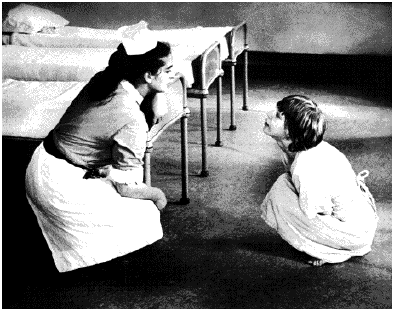
reading
Malpsychia
Humanistic Psychology and Our Discontents
Joyce Milton
(Encounter)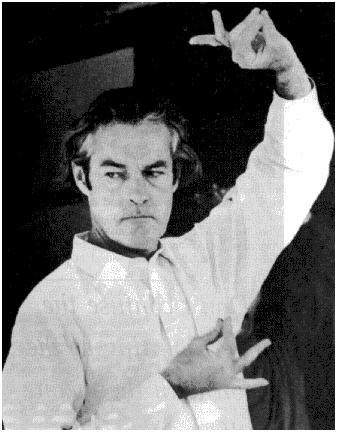
review
Sigmund Freud, William Halstead,
And the Miracle Drug Cocaine
Howard Markel
(Pantheon)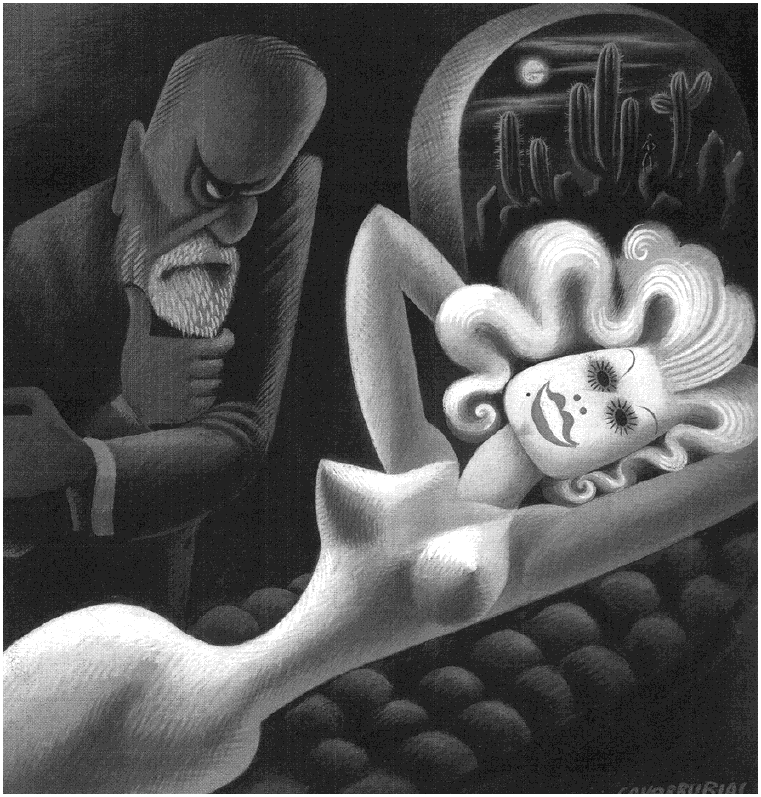
There was a man with a hernia
Who said to his doctor "Goldern-ya,
When cutting my middle,
Be sure you don't fiddle
With matters that do not concern-ya."Armed with a controlling personality of epic proportions, more times than not the surgeon restricted satisfying his drug hunger to a precise schedule of furtive morphine injections. He also managed to contain his cocaine cravings to those safe periods when he was far away from the hospital and could afford to binge.
review
art history are settled to everyone's satisfaction.
Freud would have said it depends what that means.
There is never an end to the meanings of money,
The madness of matter, the meanness of mothers,
Otherwise why would man 'A' be a Manet,
And man 'B' be a Monet, manner and all?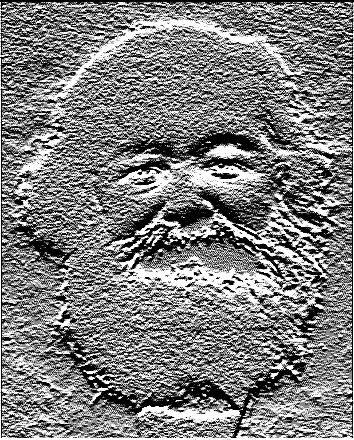
But what manners! What Monets! What need there be more?
What's money? What's Manet? It's Manets that matter:
The way that their matter is made to have meaning,
Manually, maddeningly, matter-of-factly.
What matters is manner. It's manner that means.
poem
John Katzenbach
(Ballentine)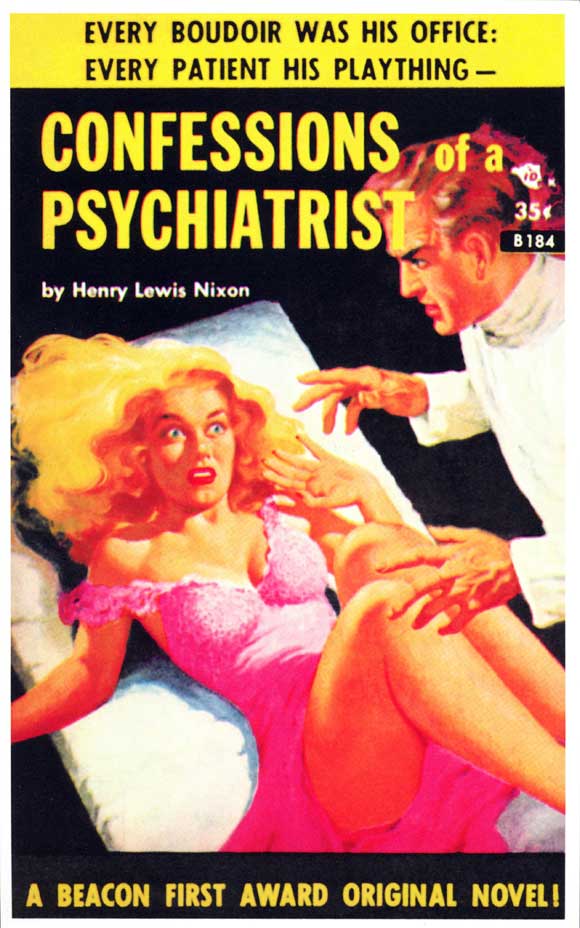
review
For the Disabled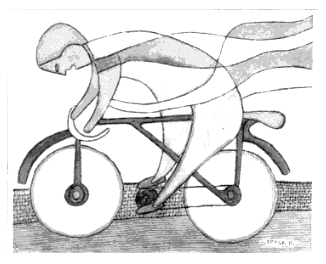
reading
Tanya Luhrmann
(Vintage)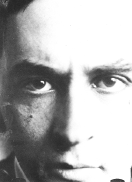
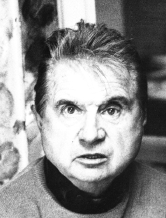 She studies the dyads: how can a therapist love a patient and yet not get enmeshed in the patient's problems to such a degree that he may lose balance --- and the ability to support? How can we compare the use of talk therapy (which has never, in controlled studies, proven to be effective) with the startling power of the newer drugs? How can help for those in mental pain be treated honestly and well, while the insurance companies are demanding cold efficiency which has the effect of putting an end to the many uses of instinct, experimentation, and balance that made psychotherapy such a vital force of change for so many of us?
She studies the dyads: how can a therapist love a patient and yet not get enmeshed in the patient's problems to such a degree that he may lose balance --- and the ability to support? How can we compare the use of talk therapy (which has never, in controlled studies, proven to be effective) with the startling power of the newer drugs? How can help for those in mental pain be treated honestly and well, while the insurance companies are demanding cold efficiency which has the effect of putting an end to the many uses of instinct, experimentation, and balance that made psychotherapy such a vital force of change for so many of us?
review
Michael Ingall 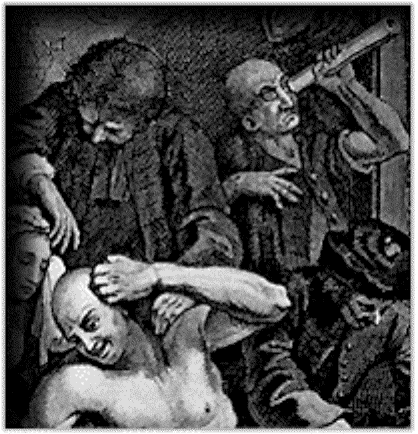
article
all those Indian relics against beige, an
ashtray from Harrah's in Reno, swag light
on dim, and piles of old New Yorkers,
which I flipped through furtively for the captions
under the cartoons, for any kind of humor.
The quiet was palpable, and I could feel the weight
of the San Francisco fog lean against her office door.
Once she fell asleep in a session. I did not
wake her. Compliant, complacent, I allowed her to dream
her own Jungian dreams --- dark men in four o'clock shadow;
a red hibiscus opening; anima, animus. I merely
sat there in the leather chair, studied the bones
in her wrists, and yammered rhythmically on and on,
mantra-like, about sex, death, and my pathological
tardiness. The Navajo rug as a backdrop,
her cocked head could have been the perfect
Andrew Wyeth; Helga lines around the eyes.
When she woke, I did not mention that she'd dozed,
nor for how long, because of (you know) the transference-
counter-transference thing. I merely said at the end
of the session: My dead father stands each night
at the foot of my bed. Every day I walk through
a different Bay Area shopping mall in a tennis skirt.
I hate summer. Things die. And just last week
I put my sleeping infant on a cot inside a display tent
at Big Five, and left her there. Am I having a nervous
breakdown? "No," she said, standing dim and fatigued
next to her shelf collection of cactus and succulents,
"You are experiencing what we call a personality disintegration."
"Oh, good" I said, "I feel so much better, and what
do you advise?" Be good to yourself, she offered,
take a friend to lunch, long walks to the beach,
hot baths, and go to a good Chinese restaurant. So I did.
poem
Chloé's Triangles
reading
(At the Hyatt Regency Bar)
a five-day conference on
family therapy in Phoenix.)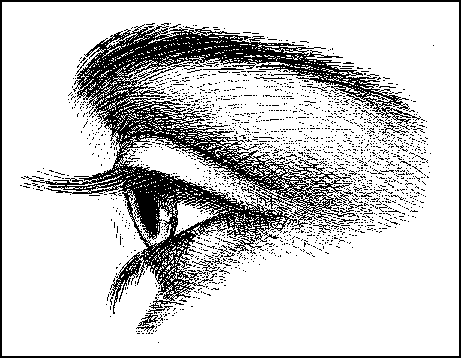
readingIf you think you can get me to break my fast, you'll have to think again. Just look at me: I am nothing but skin and bones and I might easily die. And if death is the price I have to pay for my power, then I shall willingly pay it.